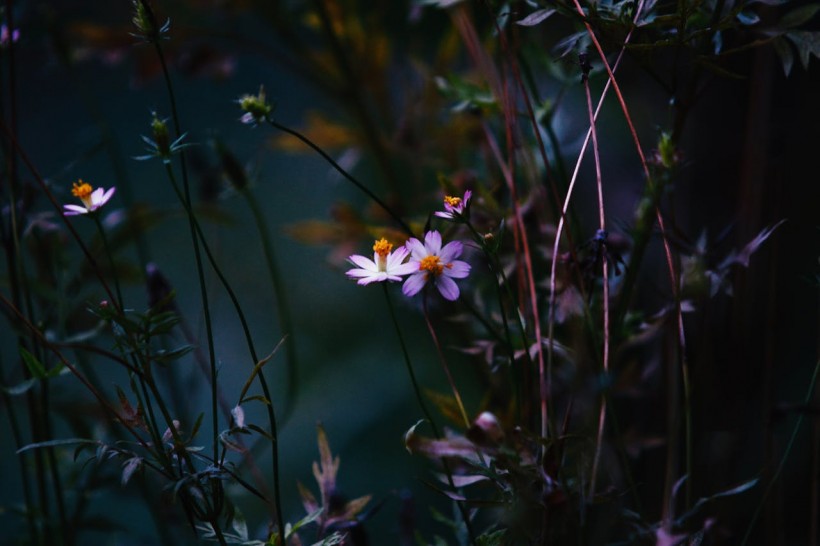Every individual goes through a daily cycle. We spend the day doing our regular tasks, and then we go to sleep. Messing with this cycle by not sleeping, doing shift work, traveling to a different time zone, or living in areas with 24 hours of light or dark can interfere with a person's well-being and long-term health.

(Photo : Pixabay/ Pok Rie )
Do Plants Sleep?
Most plants have similar cycles. During the day, the little solar farms in the leaves of a plant 'wake up' and convert sunlight and carbon dioxide to sugar through photosynthesis. At night, this system switches off. Many other plant processes follow a similar cycle, with some more active in the day and some more active at night.
Circadian clocks regulate the day-night cycle, the 24-hour cycles responsible for controlling the essential physiological functions in living organisms such as sleep, metabolism, blood pressure, and hormone levels. Experts have known that this clock changes as people age, and it has been evident in metabolic diseases like obesity and diabetes.
Studies in plants reveal that environmental cues such as sunlight and temperature regulate circadian cycles. However, these day-night processes continue even if the plant is placed in a dark environment. The earliest reported study demonstrating the circadian rhythms of plants in complete darkness was performed in the 18th century.
According to plant signaling researcher Dr. Mike Haydon from the School of BioSciences at the University of Melbourne, circadian rhythms have evolved multiple times in various organisms, so they are important. In humans, circadian rhythm can be affected by what we eat and the exact mechanism that happens in plants.
In the study entitled "Sucrose and Ethylene Signaling Interact to Modulate the Circadian Clock," Haydon and his team showed that maintaining circadian rhythms in the dark requires sucrose produced by photosynthesis. Sugar can shorten the circadian rhythm in continuous light, helping keep the ideal cycle. Still, the researchers do not understand the feedback loop's mechanism.
READ ALSO: Why Do We Need to Sleep?
Role of Ethylene in Circadian Rhythm
In a research collaboration led by Dr. Haydon and Professor Alex Webb, experts from the Universities of Melbourne, Cambridge, and York discovered that ethylene is one of the critical components in maintaining the circadian rhythm in plants. The study was conducted while exploring the genes and proteins that regulate the circadian clock in Arabidopsis, a small flowering plant related to mustard and cabbage.
Known as the 'aging hormone,' plants commonly produce ethylene and are best known for promoting fruit ripening. Plants release ethylene as a gas. It serves as a way for plants to communicate with each other to ensure that biological events, like fruit ripening, happen at the same time. Aside from this, ethylene is also found to play crucial roles in growth and responses to pathogens or other stressors.
According to Dr. Haydon, ethylene production is known to follow the day-night cycle, but its role in regulating this cycle is not known. The findings of the study helped the research team discover a well-defined network of receptor proteins and transcription factors that mediate ethylene signaling in plants. This ethylene signaling pathway promotes circadian rhythms by acting on GIGANTEA, the clock-regulating genes regulated by sugar.
RELATED ARTICLE: Mind After Midnight Hypothesis: Staying Awake Late at Night or Past Circadian Rhythm Causes Adverse Changes in the Brain
Check out more news and information on Circadian Rhythm in Science Times.



![Earth's Quasi-Moon Kamo‘oalewa Could Originate From Lunar Surface Not Asteroid Belt [Study]](https://1721181113.rsc.cdn77.org/data/thumbs/full/53275/89/56/50/40/earths-quasi-moon-kamo-oalewa-could-originate-from-lunar-surface-not-asteroid-belt-study.png)










